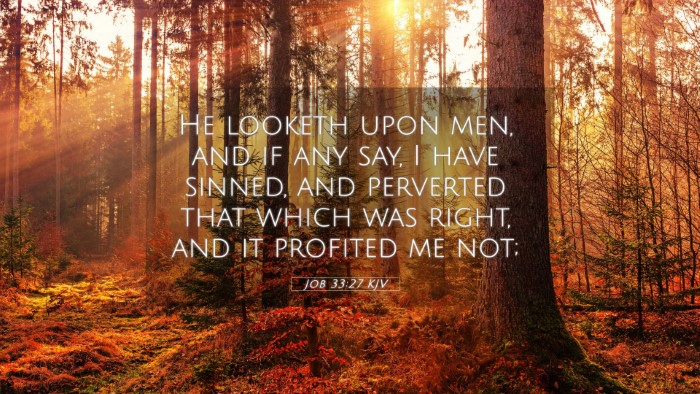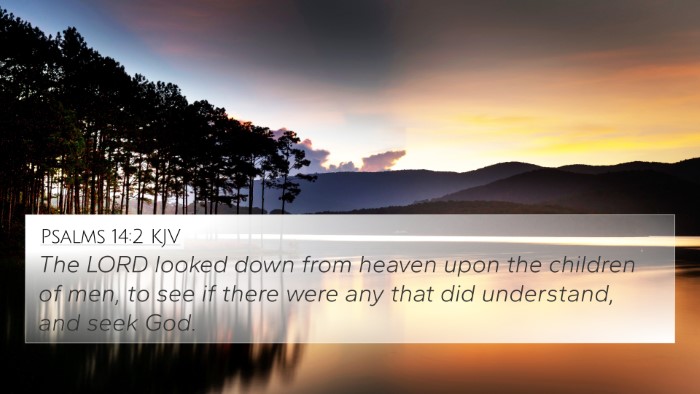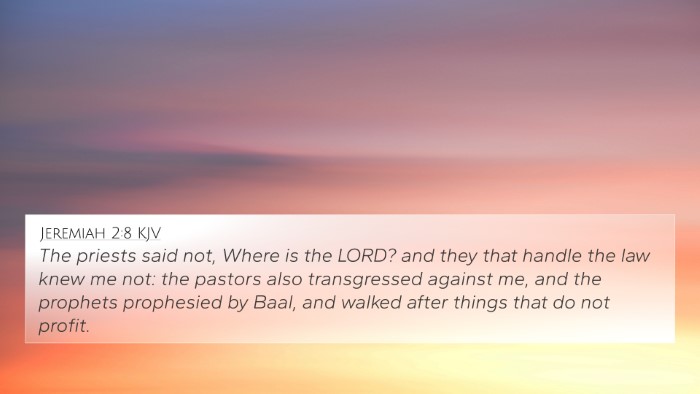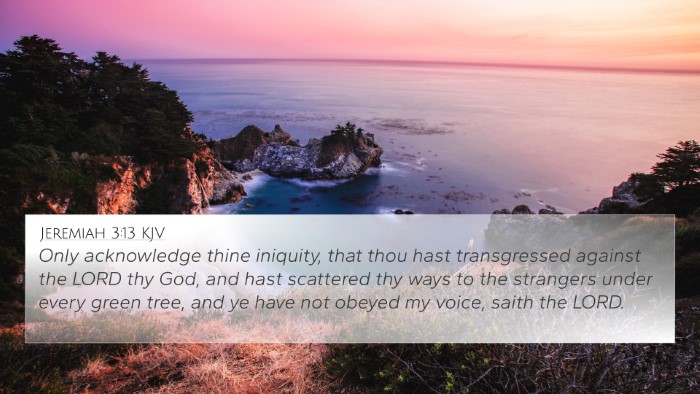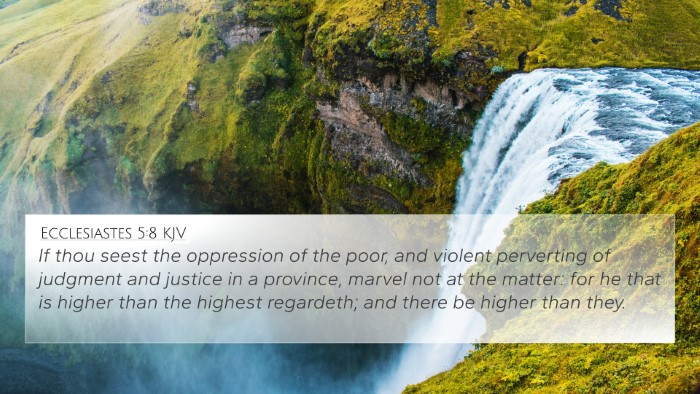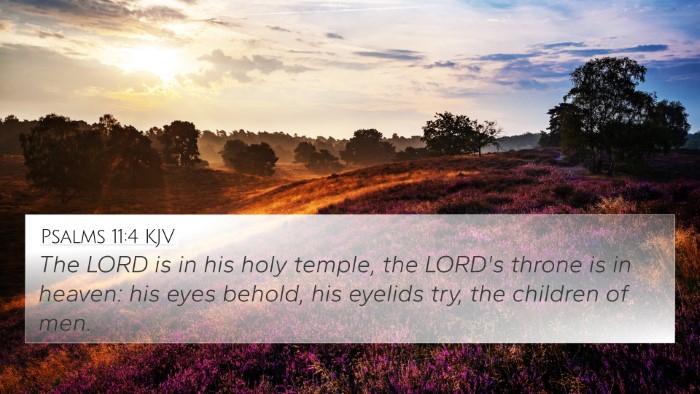Understanding Job 33:27
Job 33:27 states: “He sings before men and says, ‘I have sinned and perverted what was right, and it did not profit me.’” This verse holds significance within the broader context of the Book of Job, where themes of suffering, repentance, and divine communication are prevalent.
Commentary Overview
This verse appears in the discourse of Elihu, who speaks about the way God communicates with man, especially through dreams and visions. Elihu presents a perspective on sin, repentance, and God's mercy, asserting that man must acknowledge his transgressions in order to receive restoration.
Insights from Public Domain Commentaries
Matthew Henry's Commentary: Henry emphasizes the importance of confession and acknowledgment of sin. He notes that human acknowledgment of wrongdoing is a prelude to divine grace and healing. Elihu's assertion that a person who recognizes their sinful state can find solace is core to understanding God's mercy.
Albert Barnes' Notes: Barnes draws attention to the psychological and spiritual process of repentance. He identifies that the act of admitting one’s failure often leads to a greater spiritual awakening and deeper personal connection with God. The verse captures the essence of human experience—the struggle with sin and the hope for restoration.
Adam Clarke's Commentary: Clarke goes into detail about the metaphor of singing and how it symbolizes a joyful declaration of one's transformation and realization of sinfulness. He discusses how the act of singing can serve as a testimony to others, revealing an individual’s journey through pain and misunderstanding toward redemption.
Broader Context in the Book of Job
Job's narrative is a profound exploration of suffering and divine justice. Elihu's speeches serve as a bridge between the comfort offered by Job's friends and the ultimate response from God. This verse is pivotal in redirecting the focus from their human philosophies to a deeper reflection on one's life choices and God’s role in them.
Connected Bible Verses
In examining Job 33:27, several cross-references emerge that deepen its understanding:
- 1 John 1:9: “If we confess our sins, he is faithful and just to forgive us our sins and to cleanse us from all unrighteousness.” This reinforces the necessity of confession for forgiveness.
- Psalms 51:3: “For I know my transgressions, and my sin is always before me.” This highlights the mental anguish that accompanies sin.
- Proverbs 28:13: “He who conceals his sins does not prosper, but whoever confesses and renounces them finds mercy.” This echoes the theme of transparency leading to mercy.
- Luke 15:18: “I will arise and go to my father, and I will say to him, ‘Father, I have sinned against heaven and before you.’” This is an illustration of repentance and returning to God.
- Isaiah 59:2: “But your iniquities have separated you from your God; your sins have hidden his face from you, so that he will not hear.” This speaks to the consequences of sin.
- James 5:16: “Therefore confess your sins to each other and pray for each other so that you may be healed.” This highlights communal confession and healing.
- Romans 3:23: “For all have sinned and fall short of the glory of God.” It acknowledges the universal nature of sin.
- 2 Corinthians 7:10: “Godly sorrow brings repentance that leads to salvation and leaves no regret, but worldly sorrow brings death.” This explains the distinction between types of sorrow and their outcomes.
Thematic Connections
The themes within Job 33:27—confession, sin, and God's mercy—are echoed throughout the scriptures. The connections between these verses are vital for a holistic understanding of humility before God. The process of turning from sin and seeking forgiveness highlights an inter-Biblical dialogue about human nature and divine compassion.
Tools for Bible Cross-Referencing
To fully appreciate the implications of Job 33:27, one can utilize various tools:
- Bible Concordance: A resource that lists words and phrases used in the Bible, assisting in finding related verses.
- Bible Cross-Reference Guide: Provides a systematic approach to finding connections across different scriptures.
- Cross-Reference Bible Study: A method that encourages examining linked verses to gain deeper insights.
- Bible Reference Resources: Various texts that compile significant verses and their connections.
Conclusion
Job 33:27 encapsulates a profound truth about human sinfulness and the necessity of repentance. The insights from various commentaries highlight the importance of recognizing one's missteps in pursuit of divine forgiveness. Through cross-references and connections with other biblical texts, we see that the struggle with sin is a shared experience among believers, leading collectively toward a deeper understanding of God’s grace.
In summary, this verse not only reflects individual struggles but also invites a larger conversation about repentance, restoration, and divine mercy, effectively linking together themes and scriptures across the Bible.

